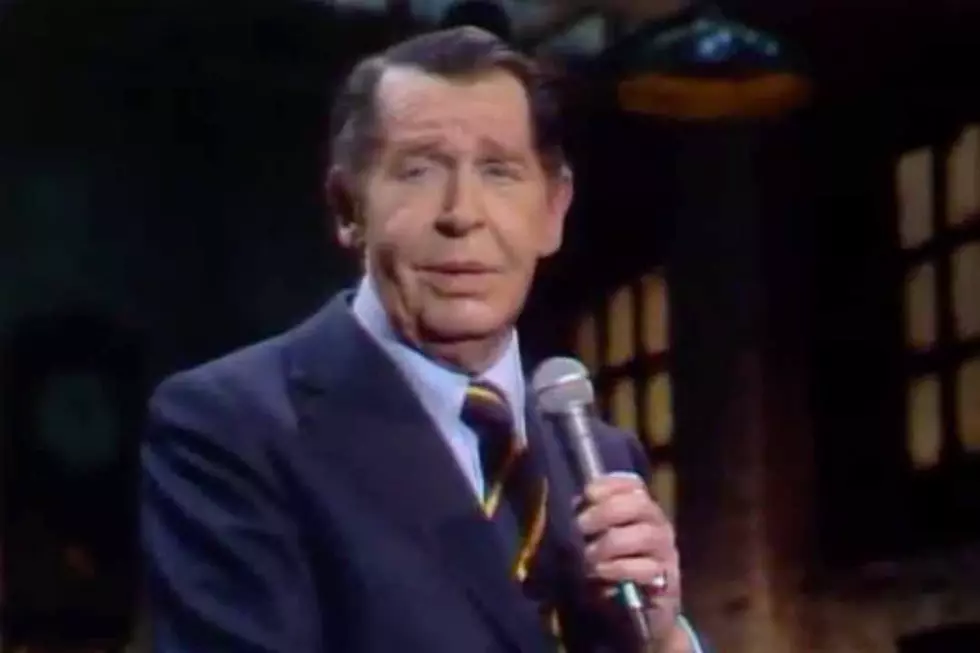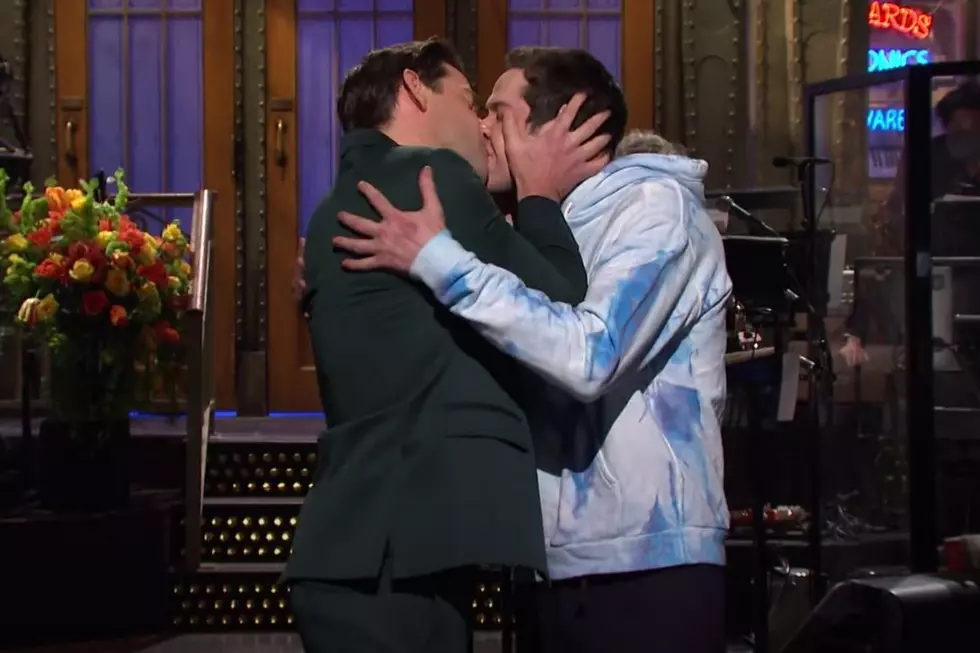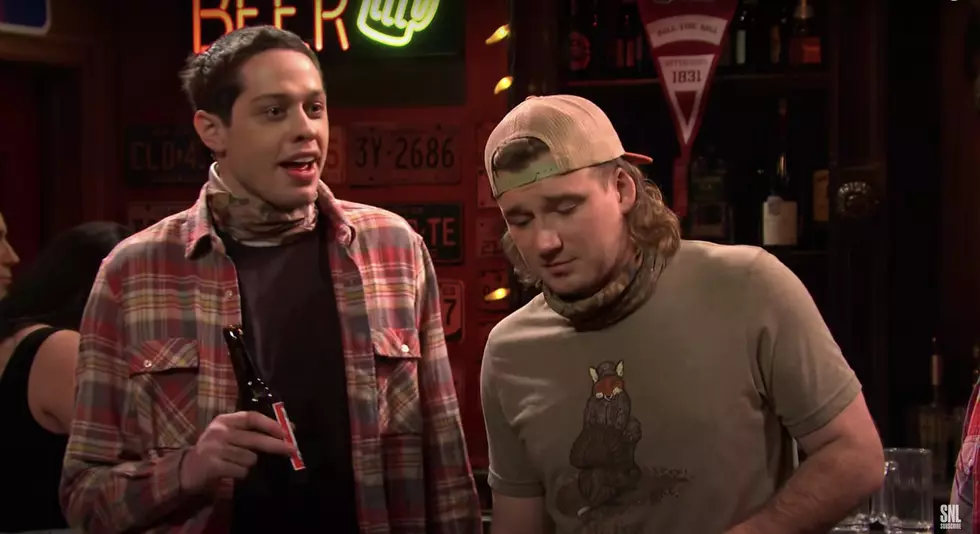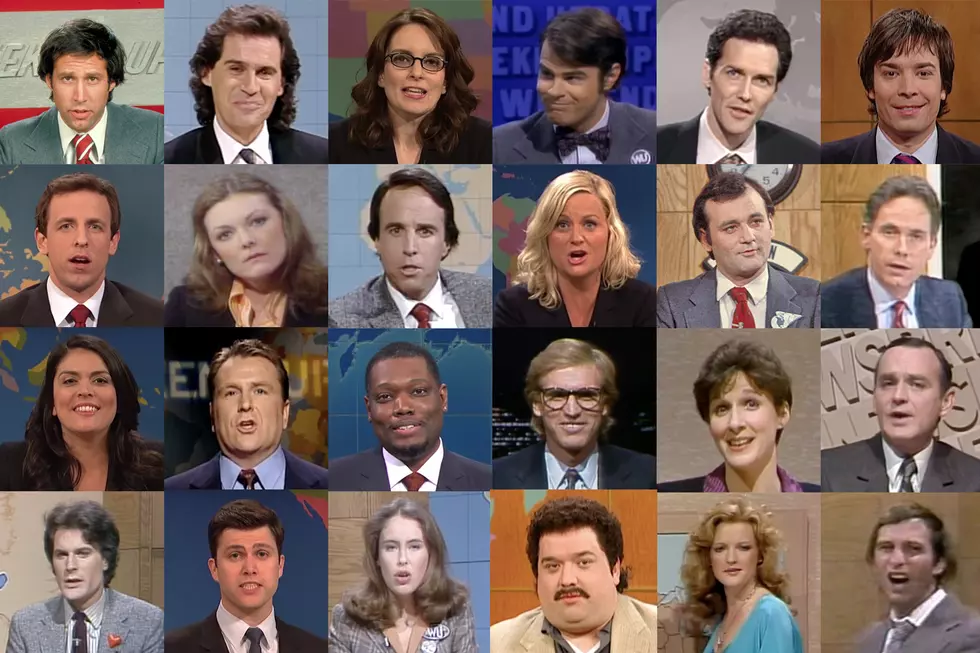
40 Years Ago: Milton Berle Gets Banned From ‘Saturday Night Live’
UCR: Movies and Culture
Saturday Night Live quickly earned a reputation for showing off the hippest names in comedy and music. But towards the end of its fourth season, they went in the complete opposite direction as Milton "Mr. Television" Berle hosted the April 14, 1979 episode.
Show creator Lorne Michaels was against the plan, but was talked into it by associate producer Jean Doumanian. "I knew we were heading for disaster from minute one," Michaels said in the oral history Live From New York: The Complete, Uncensored History of Saturday Night Live as Told by Its Stars, Writers, and Guests. "I have a great affection for old-time show business. But it had become corrupt. It wasn't what it had been. The show was trying to get away from that."
For the first couple of days, the cast was thrilled to be in the presence of somebody who'd been famous since the days of vaudeville – especially John Belushi. Berle regaled them with all sorts of old stories. "And then Milton assumed he was not hosting Saturday Night Live," NBC vice president for late night Rick Ludwin said in Live From New York.. "Milton assumed they were doing Texaco Star Theater, and as Milton sometimes did, he took over the production and tried to make it his own – as opposed to being the host."
During rehearsals, Michaels questioned a few of Berle's ideas. One was a plan for a stagehand to drop a pipe outside of the camera's view during the opening monologue so that Berle could fire off a scripted ad-lib. Another was a sketch that took place in an assisted-living facility, where he decided to upstage Gilda Radner by having food come out of his mouth while she was feeding him.
"'Now you're getting two laughs instead of one,'" Michaels remembered Berle telling him, even though it disrupted the sentimentality of the sketch. Whenever Michaels expressed concern, Berle would condescendingly pat him on the shoulder and say, "I know, I know – 'satire.'"
A few months shy of his 71st birthday, Berle also had no problem walking around in his underwear or a bathrobe in front of the cast and crew. He became close to writer Alan Zweibel, who had spent years writing for Borscht Belt comics. One day, the two were talking in Berle's dressing room and Zweibel mentioned that he had come up with many jokes for Friars Club roasts about Berle's famously large penis. That was all Berle needed to stand up and open up his robe.
"He just takes out this – this anaconda," Zweibel said in Live From New York. "He lays it on the table and I'm looking into this thing, right? I'm looking into the head of Milton Berle's dick. It was enormous. It was like a pepperoni." At that very moment, as if on cue, Radner walked into the dressing room.
Watch Milton Berle on 'Saturday Night Live'
Berle's opening monologue consisted of old vaudeville-style jokes about Dolly Parton's breasts, Puerto Ricans, Arabs and homosexuals. He closed the show by singing the Kurt Weill standard "September Song," inserting a breakdown where the pianist switched to "There's No Business Like Show Business" while Berle spoke about his lengthy history in comedy and what it meant to be on live television.
During a commercial break before the performance, he told Michaels that he had arranged for a standing ovation from the 10 people in the balcony who had been comped tickets by Berle. You can see it above at about the four-minute mark, following jazz saxophonist Ornette Coleman's performance of "Times Square."
"No one else is standing up," Michaels told Vulture in 2014. "It was just bizarre. The idea of the arranged standing ovation is just a part of show business that we were trying to separate ourselves from. We all get there eventually, I guess."
Michaels banned Berle from the show and, for decades, the episode was never rebroadcast. Eventually Berle made plenty of "Worst SNL Hosts Ever" lists, but Michaels says he can now see where the veteran comic was coming from. "Milton Berle, I was just not prepared for. I’m more sympathetic to him now than I was then, in 1979," Michaels added. "He had ruled this place for so many years, and we were these kids telling him no."
Ozzy Osbourne's Craziest TV Moments
More From Alt 95.7










